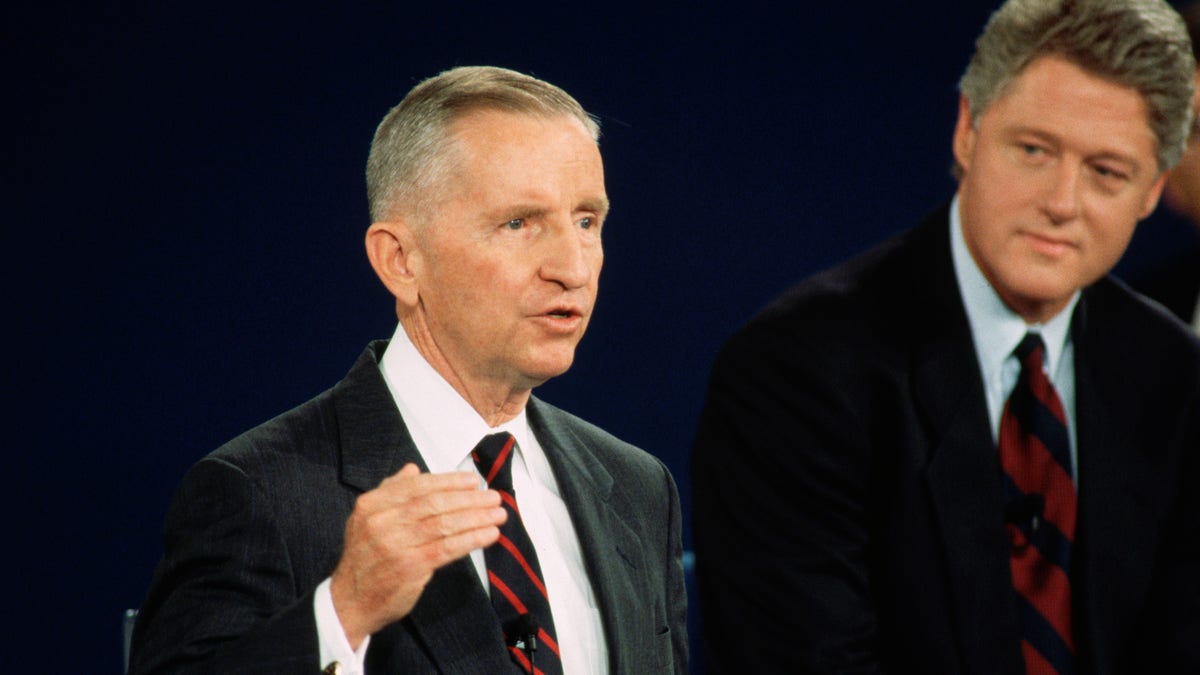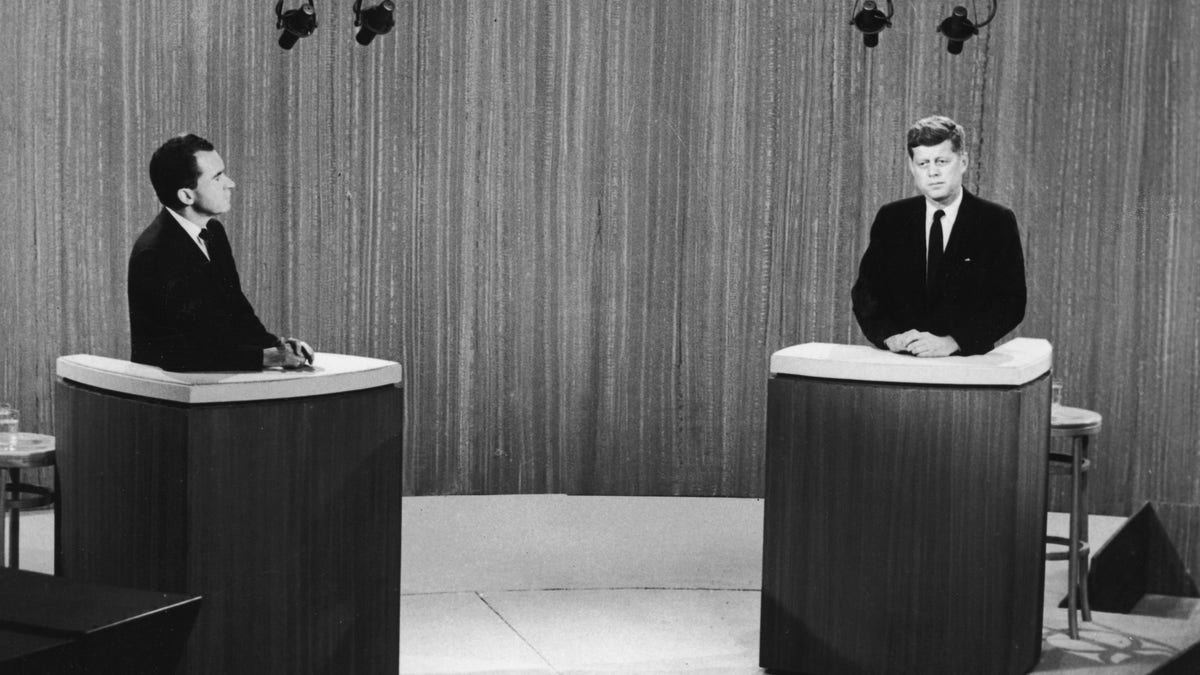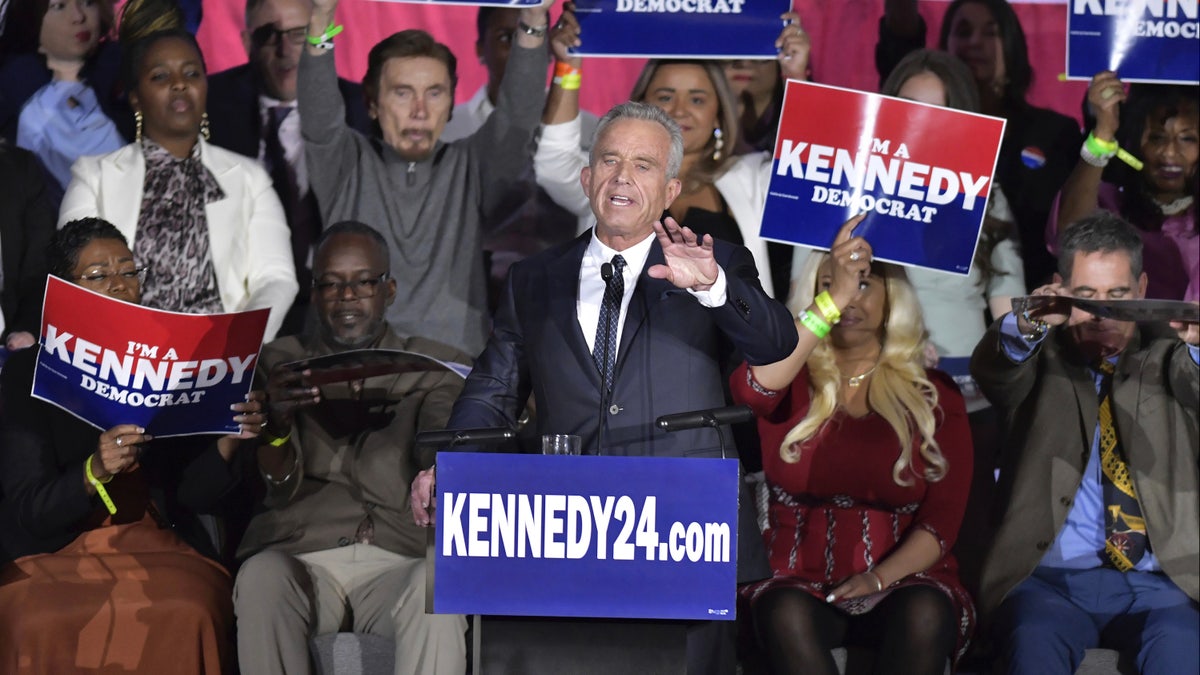Would RFK Jr. have a shot running as an independent?
Fox News anchors Martha MacCallum and Dana Perino discuss Robert F. Kennedy, Jr.'s campaign on 'The Story.'
With critics claiming the Democratic Party has been working against President Biden's top primary rival Robert F. Kennedy, Jr., discussion has arisen as to what the party's scion's best chance is at being competitive in a general election.
While an overall rare occurrence, third-party presidential candidates have at times challenged – and in the view of some observers, played spoiler to – major party nominees.
Most recently in 1992, Texas tech industrialist H. Ross Perot challenged incumbent Republican President George H.W. Bush and Arkansas Democratic Gov. Bill Clinton, also notably eschewing traditional politicians in selecting a running mate.
Perot chose Adm. James Stockdale, a Vietnam War POW and Medal of Honor recipient, and their ticket captured about 19% of the popular vote but failed to win any state electors. Clinton ultimately defeated Bush and Perot 370-168.
Until 2020, when Donald Trump lost to President Biden, the elder Bush's loss was the last occurrence of an incumbent failing to win reelection to the White House, a feature that led many to believe Perot essentially played spoiler to Bush.
RFK JR: DEMS ARE THE PARTY OF WAR, AMERICANS CAN'T AFFORD SUDDEN EMERGENCY

Former Arkansas Gov. William J. Clinton listens to independent candidate Ross Perot during the 1992 Presidential Debates. (Wally McNamee/Corbis via Getty)
The most successful third party presidential candidate was then-former Republican Theodore Roosevelt of New York, who – as the 1912 nominee of the Progressive Party – actually outperformed Republican nominee President William Howard Taft of Ohio. Roosevelt won six states versus Taft's two, but the presidency ultimately went to Democrat Woodrow Wilson of New Jersey.
In the same way, some have questioned whether Kennedy's best chance lies in an independent bid – which notably would result in a member of the most famous Democratic Party family in history making a high-profile break with the party.
On "The Story," anchor Martha MacCallum played clips of podcasts Kennedy has joined, noting the candidate has explicitly drawn parallels between his embrace of the growing medium and his uncle President John F. Kennedy's embrace of then-novel television in 1960.
During the 1960 presidential debates, JFK was said to have performed better with those watching on TV while Republican Richard Nixon was the favorite of those listening on the then-more common medium: radio.
RFK JR DOUBLES DOWN ON ALLEGATION CIA INVOLVED IN UNCLE'S ASSASSINATION

Republican Vice President Richard Nixon (1913-1994) and Sen. John F. Kennedy, D-Mass., (1917-1963) take part in a televised debate. (Hulton Archive/Getty Images)
Fellow Fox News anchor Dana Perino added that Kennedy's recent campaign event in New Hampshire drew many Republicans in addition to Democrats, saying one of her GOP-aligned friends was in attendance.
"I think that the Democrats on the Biden campaign side have basically thought, ‘well, [Kennedy’s bid] is just a lark'. They've ignored him until it started to grow a little bit," she said.
"[In New Hampshire] he ran the whole gamut, all the things he cares about. He didn't mention vaccines once. So he knows it's a vulnerability. He knows he's going to get asked about it."
The environmental attorney's critiques of vaccines, which he has sought to express the nuances of during podcast sit-downs with Joe Rogan and Bill Maher – have been one of the areas where Democrats loyal to Biden have criticized him.
"He does have his finger on the pulse of what a lot of Americans are thinking about. It might not be with the Democratic Party. However, that's what he has chosen to run with. And I think he should rethink that," said Perino.
In that regard, MacCallum cited recent surveys showing American voters' 2022 party preference split between Republicans and Democrats at 28%, while 41% of Americans identify as independents – and that current major-party front-runners Donald Trump and Joe Biden scored high negatives among those surveyed.

Robert F. Kennedy Jr. launches his presidential bid. (AP Photo/Josh Reynolds)
"Maybe he will rethink it, because, let's look at some of the statistics here…" she said. "…only 36% have favorable views of the two major candidates from both parties."
She noted Kennedy had told Rogan that his campaign is more about "bringing those two groups together – the left and the right – into a populist movement."
On the surface, Kennedy has appeared to draw the interest of right-leaning Americans due to his distrust of the federal healthcare bureaucracy in terms of vaccines and mandates, and left-leaning American via his longtime environmental advocacy.
Perino said that, should Kennedy decide to seek an independent bid, like Perot and Roosevelt before him, it would still be very difficult.
"I understand [his] family tradition of being Democrats, but if there was ever a time for him to break out and actually make an impact, I would ask him, 'Do you really want to be president? Because you're not going to get there with the Democratic Party'," she said.
"They will coalesce. They're going to make sure that whoever their candidate is, they will get behind. And they might have to swallow hard. They might not like it all. That might be like eating spinach, but they'll do it."
She added that Sen. Bernie Sanders, I-Vt., learned that when he challenged the Democratic establishment in 2020, which ultimately coalesced around Biden.
"[B]ut Bernie Sanders did not have a support with 20% of Republicans. Does [Kennedy] have that here? Quite possibly."
"He's been very interesting. The media is paying attention. He does interesting things: He goes to the border, he goes to the crime scene. He goes and talks to everybody. He's not afraid of interviews – and Biden's not doing any interviews."








































